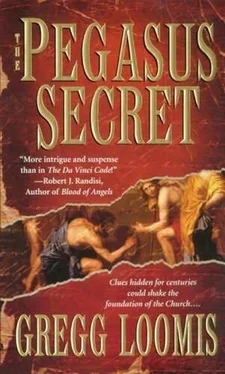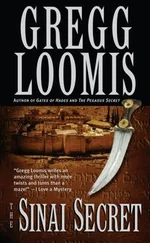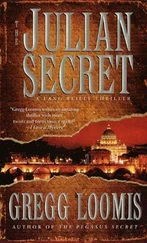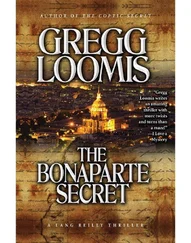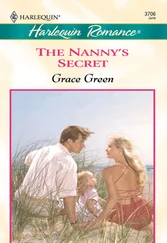She reached for the phone on the other side of the bed, stopped and stood. Stubbing out her cigarette, she left the room, trying to remember where she had seen the nearest pay phone.
Oxford
1000 hours the next day
Late the next morning, Lang turned the ancient Morris Minor off the M40. The sixty miles from London had been as uneventful as possible in a car the size of a shoe box. A small shoe box. His only problem, other than cramps in muscles he didn't even know existed, had been a major case of flatulence, the result of an Indian meal Rachel, Jacob's wife, had insisted on preparing for dinner. In the intelligence community of the past, Rachel had been known as one of the world's worst and most enthusiastic cooks. Her dinner invitations had inspired legendary excuses.
Last night, she had prepared a version of Bombay aloo, a fiery potato dish, the heat of which had mercifully seared Lang's taste buds, rendering him impervious to her latest culinary disaster. All in all, he had probably gotten off lightly with only gas.
The Magdalen Bridge was, with typical British disregard for the number of letters in a name, pronounced "maudin." However articulated, it gave Lang a picture-postcard view of the honey-colored spires and gothic towers that were Oxford. He could have been looking at a skyline unchanged in five hundred years. The town, of course, had changed. The Rover automobile factory, among others, was located here. Still, the town had a medieval quality that its residents, both town and gown, intended to preserve.
Unlike American universities, Oxford was a composite of any number of undergraduate and graduate colleges, all more or less independent. Christ Church was one of the oldest and largest.
Just off the Abington Road, Lang found a rare parking spot among the bicycles that are Oxford's most popular form of transportation. He entered the Tom Quad, the university's largest quadrangle, named for the huge, multiton bell that chimes the hours there. Not only do the British ignore letters, but they also like to name towers and bells.
He had written Jacob's directions down and read them over before proceeding along one of the paths that formed a giant X across the neatly trimmed grass. On the other side, two young men tossed a Frisbee.
He entered an arch and climbed stone stairs as worn by centuries of student feet as those to Jacob's office had been by lawyers and clients. Down a poorly lit corridor, he found a tarnished plaque that informed him he was standing at the entrance to the office of Hubert Stockwell, Fellow in History. He was reaching to knock when the door swung open and a young woman emerged, her arms full of books and papers. She gave Lang a startled look before dashing for the stairwell.
Lang was fairly certain the expression on her face had nothing to do with his digestive tract problems. "Come in, come in," a voice boomed from inside. "Don't stand about in the hall."
Lang did as ordered.
His first impression was that he had walked into the wake of a tornado. Papers, books and magazines were scattered across every surface, including the floor. This place was the brother to Jacob's office. There was an odor, too: the smell of old, stale documents Lang recognized from his occasional foray into the court clerk's archives at home. Bound and unbound papers were stacked on a mound he subsequently identified as a desk behind which sat a round-faced, bearded man peering at him through thick horn rims. He could have passed for a young Kris Kringle.
"You must be Jacob's friend," he said. "Look too old to be one of my students." Lang extended a hand which the man ignored. "Lang Reilly."
"Hubert Stockwell," the man behind the desk replied without getting up or reaching out his own hand. "A pleasure and all that rubbish."
He started to say something else, but stopped and his face wrinkled as he sneezed. "Bloody old buildings! Drafts, damp, cold stone floors. Bleeding wonder we don't all die of pneumonia!"
He produced a soiled handkerchief, wiped his button of a nose and returned the cloth to wherever it had come from, all in a single-motion so quick Lang was unsure he had seen a handkerchief at all. Lang would not bet on any shell game the good professor ran.
"You'd be the chap interested in the Templars."
"I understand you're an authority."
"Rubbish," Stockwell said, enjoying the compliment anyway. "But they did traipse through a period of history about which I know a little. Yank, aren't you?"
The change of subject made Lang shift mental gears before responding. "Actually, I'm from Atlanta, where a lot of people might resent being called that. Has to do with a Yankee general who was careless with fire."
Stockwell's head bobbed, reminding Lang of one of those dolls given to the first five thousand to enter a baseball game."Sherman, yes, yes. Gone With the Wind and all that. Didn't mean to offend."
"You didn't. About the Templars…"
He held up a hand. "Not me, old boy, not me at all. Had an associate, chap named Wolffe, Nigel Wolffe, was fascinated by the blokes, translated some sort of manuscript, scribblings supposedly written by a Templar before he was put to death. Beseeching God for mercy, confession of sins, contrition, all of the claptrap of the medieval church, I'd imagine."
"And of today's Catholics," Lang said. Stockwell's jaw slackened and the glasses slid to the tip of his nose. "Oh dear, I didn't mean…"
Lang smiled, an assurance they were perfectly comfortable together, just two antipapists. "You said you had an associate."
Stockwell sighed heavily. "That's right, past tense. Poor Wolffe is no longer with us. Splendid chap, played a killer hand of whist. Tragic, simply tragic."
Lang felt a chill not entirely caused by the drafts Stockwell had complained of. "I don't suppose Mr. Wolffe…"… Stockwell sneezed, doing the trick with the hankie again. "Dr. Wolffe;" "… Dr. Wolffe died of natural causes?" Stockwell stared at Lang, his eyebrows coming together like two mating caterpillars. "How's that?"
"I was asking how Dr. Wolffe died. An accident, perhaps?"
"Yes, yes. You must have read about it, seen it on the telly."
"I'm sure I did."
The professor turned to gaze out of the only window the cramped space had. There was a look of longing on his face, as though he were wishing he could go outside and play. "They said he probably left the bloody ring on after making tea. Explosion knocked out windows all the way across the Quad."
"There was a resulting fire?"
Stockwell managed to pull away from the view outside. "Extraordinary memory you have. Mr…"
"Reilly."
"Reilly, yes, yes. Surprising you would remember that from a newspaper or television account months ago." Lang leaned forward, hands on the paper-swamped desk. "His work on the Templars, it burned, too?"
Stockwell's Santa Claus face was masked with melancholy, the loss of scholarly work more lamentable than that of a colleague. "I'm afraid so. The original of the manuscript, notes, everything except his first draft."
Maybe Lang hadn't made the trip for nothing after all.
"Where might that draft be?"
"The University library."
"You mean I can just go to the library and read it?"
Stockwell stood and looked around as though he might have forgotten where he had parked his sleigh. "Not exactly, no. I mean, I'll have to get it. Poor Wolffe ran me a copy on the machine, asked for help. Chap could never edit his own work. I was working on it when he… Well, he won't be publishing anyway, not now, will he? I left it at my carrel, planned to finish it up, submit it in his memory. Let's be off, shall we?"
Lang would have been surprised had the good professor been wearing something other than a tweed jacket with leather elbow patches. He reached behind the door and took a tweed cap from a coat rack. His universal uniform of academia was now complete.
Читать дальше
